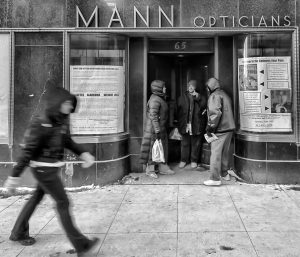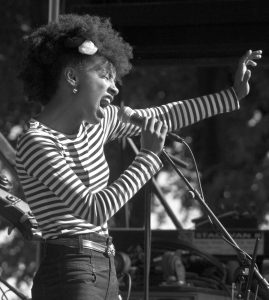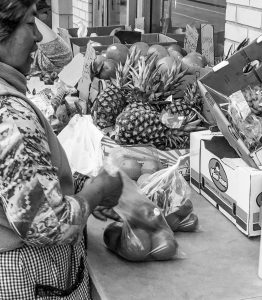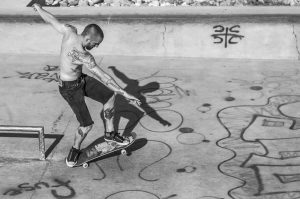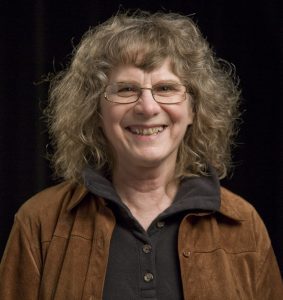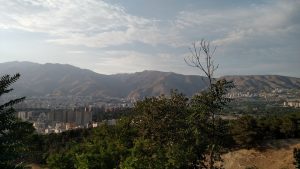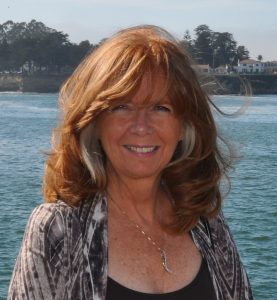
Out of Step
When I cut the straps off my patent leather Mary Janes, I wasn’t trying to cause trouble. I just couldn’t stand them anymore. The girls in my class wore loafers; some wore stockings already. My mother and my sisters, who took their shapely legs as a given, laughed when I asked for stockings. My legs were sticks that hung from a curveless frame. Stockings would be absurd, and they said so.
I hated those shiny shoes. They made me look even younger than I was. I had to wear them to my brother’s wedding. My thirteen-year-old sister, with her grown-up body, wore pumps and a bridesmaid’s dress. I was imprisoned in a crinoline. Making me dress this way was cruel. Eleven-year-old girls didn’t wear crinolines and straps on their shoes—even in 1960.
But I had no say in what I got to wear or be or feel and couldn’t imagine a time when that would change. Who I was or wanted didn’t matter. What mattered was figuring
out how we’d get money to eat. Wanting something for myself—even an opinion—was selfish, and my mother didn’t hesitate to point that out. I wondered if keeping me childlike served some purpose. Maybe she craved innocence.
The patent leather straps cracked within weeks, but there would be no replacing them, not until the soles had holes. So another day came, another day of looking down the rows of desks to see the loafers and the little Cuban heels the other girls wore, another day in ankle socks and Mary Janes, another day no closer to any chance of replacing them because the heels were sturdy, the soles barely worn. That night I took my mother’s sewing shears, locked myself in the bathroom, and cut off the straps, cut away at the little clasps until there was no sign of them.
From the first snip, I saw I was making things worse. Glimpses of the ragged white lining broke the flow of the shiny black trim. But it was too late to stop. I imagined repairing the damage with shoe polish or tape, but the ugly things gaped back at me, mouths wide, as if laughing, as if they knew that nothing I did could deter them from their mission of humiliating me.
Without the straps, the shoes were loose now, uneven, and they wouldn’t stay on my feet when I walked. I’d been nervous from the start about what my mother would say when she saw what I’d done, but now I was panicky, my hands trembling. I’d wrecked the shoes, purposely destroyed something she couldn’t replace, not without using money we needed for food or rent or subway fare.
I stuffed the shoes into my drawer, far back, behind some sweaters, so I never understood how she found them. She sat in the living room that night, staring out the window, down into the street, as if she’d seen these passing cars too many times before.
The shoes were on her lap, like two bruised puppies, two innocents I’d willfully harmed. She was right about me. I was selfish. There was no excuse for what I’d done.
She turned and I saw her eyes were red, her cheeks flushed. “I’ll pick you up a new pair after work tomorrow,” she said. She didn’t ask why I’d done it. I wanted to explain what it felt like to be me, the girl so unlike the others, but I had no words for what I felt, at least none that would have made sense to her. “You can stay home from school tomorrow.” Her voice was flat, no trace of anger. I’d hurt her and I couldn’t make her understand why.
I left her there, headed for her bedroom at the end of the hall. In the back of her closet on a low shelf was a large box filled with old shoes. The hand-me-down box, we called it. I dug in, pushing aside scuffed high heels and beat-up loafers, and found my sister’s Buster Browns, still molded into the shape of her feet. One of the laces was broken, but I could use some yarn for now. She’d outgrown them a long while back, but they were still too big for me. I stuffed some toilet paper into the toes, and they stayed on well enough.
In the morning, I told my mother I didn’t need new shoes and she nodded, grateful maybe, but we both understood the shoes of a child were not right for me anymore.
I wore the Buster Browns for weeks, sometimes having to curl my toes to keep them on. I rarely looked down. I learned to take small steps.
Mary Ann McGuigan’s short fiction, nominated for the 2016 Pushcart Prize and Sundress Publications’ Best of the Net 2016, has appeared in The Sun, Grist, Perigee, Prime Number, Into the Void, and other literary magazines. Her young-adult novels, one a finalist for the National Book Award, have been ranked among the best books for teens by the Junior Library Guild and the New York Public Library. Crossing Into Brooklyn, her latest novel, was published by Merit Press in 2015. To learn more about Mary Ann’s fiction, visitwww.maryannmcguigan.com.

